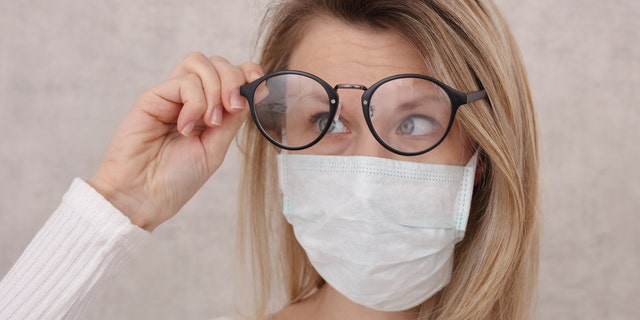Get all the latest news on coronavirus and more delivered daily to your inbox. Sign up here.
As countries and states begin to lift some coronavirus restrictions and millions consider whether to venture outside, wearing a mask or face covering has been widely adopted.
Public health officials recommend the N95 masks should be worn by frontline medical workers. But if you’re going to buy a regular mask or make your own out of cloth, what’s the best material for protecting yourself and those around you?
A group of researchers tested how a range of different fabrics work to filter, or catch, extremely small particles. They discovered that “hybrid” fabrics filtered the majority of particles.
CORONAVIRUS LINGERS IN THE AIR OF CROWDED SPACES, NEW STUDY REVEALS

Researchers investigated which fabrics are best for your mask.
(iStock)
“We have carried out these studies for several common fabrics including cotton, silk, chiffon, flannel, various synthetics, and their combinations,” scientists explain in the paper’s abstract.
According to researchers, the filtration efficiencies of hybrids, such as cotton-silk and cotton-flannel, were more than 80 percent for particles smaller than 300 nanometers and more than 90 percent for particles larger than 300 nanometers. A nanometer equals one billionth of one meter.
“We speculate that the enhanced performance of the hybrids is likely due to the combined effect of mechanical and electrostatic-based filtration.”
Researchers also found that with fabrics such as cotton, a high thread count provides the most filtration. The smaller the holes, the fewer large particles can escape.
CORONAVIRUS HAS MUTATED INTO AT LEAST 30 DIFFERENT STRAINS, STUDY FINDS
REMOTE MEETINGS DON’T FEEL THE SAME. HERE’S WHY
“Overall, we find that combinations of various commonly available fabrics used in cloth masks can potentially provide significant protection against the transmission of aerosol particles.”
However, none of this information matters if your mask does not fit correctly.
“Our studies also imply that gaps (as caused by an improper fit of the mask) can result in over a 60 percent decrease in the filtration efficiency,” researchers said.
As of Monday afternoon, COVID-19 has infected more than 3 million people worldwide. It has taken the lives of at least 209,661 people, including 55,563 in the United States.






